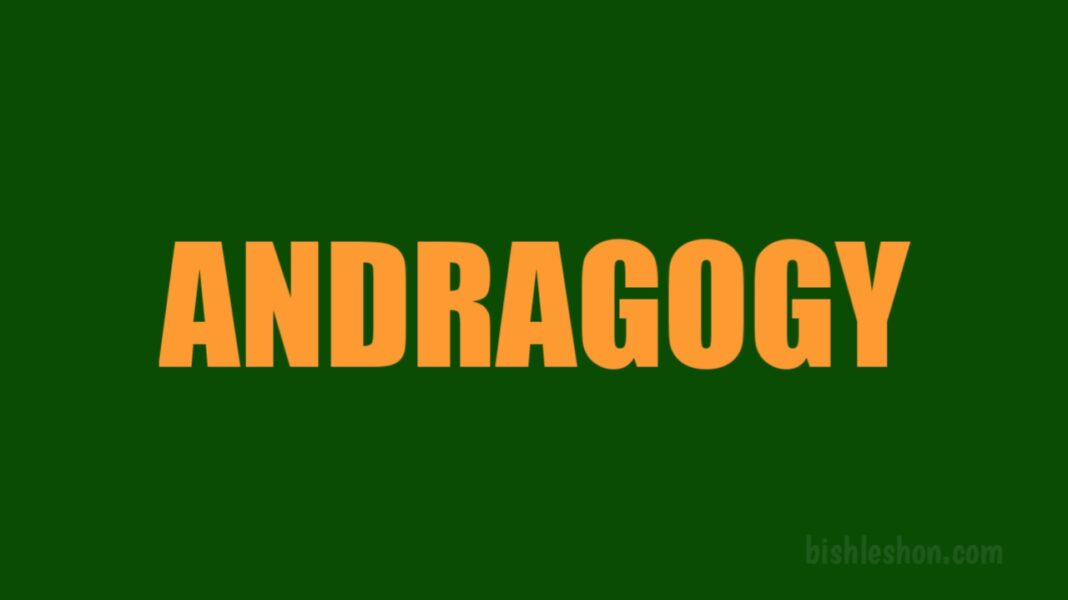Education is a continuous process that enables an individual to acquire knowledge, skills, and competencies throughout their lives. As such, learning is not limited to the traditional classroom setting but can occur in various contexts, including the workplace, community, and personal settings. Andragogy is a theory of adult learning that provides a framework for understanding how adults learn and what they need to learn effectively. This article provides an overview of andragogy, including its definition, concept, background, classifications, subheadings, and bibliography.
Table of contents
Definition of Andragogy
Andragogy is a theory of adult learning developed by Malcolm Knowles in the 1960s. The term “andragogy” is derived from the Greek words “andr” (meaning man) and “agogos” (meaning leader or guide) and refers to the process of leading adults in learning. Andragogy is based on the belief that adult learners have unique needs and characteristics that distinguish them from children and that effective teaching methods for adults must take these factors into account.
Concept of Andragogy
The concept of andragogy is based on four main assumptions, which include:
- Self-Concept: Adult learners have a self-concept that is independent, self-directed, and autonomous, and they are responsible for their own learning.
- Experience: Adult learners have accumulated a vast range of experiences that are a valuable resource for learning, and they learn best through problem-solving and applying what they already know.
- Readiness to Learn: Adult learners are motivated to learn when they perceive a need to learn and when the learning is relevant to their personal or professional goals.
- Orientation to Learning: Adult learners are goal-oriented and want to apply what they learn immediately to their work or life situations.
Background of Andragogy
The concept of andragogy emerged in the 1960s, as a response to the growing number of adult learners in higher education and the workforce. Malcolm Knowles, an American adult educator, developed the theory of andragogy, which was based on the principles of humanistic psychology and the philosophy of pragmatism. Knowles believed that traditional teaching methods, which were based on behaviorism, were not effective for adult learners, and that a new approach was needed to meet their unique needs and characteristics.
Classifications of Andragogy
Andragogy can be classified into different categories, including:
- Self-Directed Learning: Adult learners take responsibility for their own learning and are actively involved in the learning process.
- Problem-Based Learning: Adult learners learn best when they are presented with real-world problems that require critical thinking and problem-solving.
- Experiential Learning: Adult learners learn through experience and reflection on that experience.
- Transformative Learning: Adult learners learn by transforming their existing beliefs and assumptions through critical reflection and dialogue.
- Collaborative Learning: Adult learners learn through collaboration and sharing their experiences and knowledge with others.
Characteristics of Adult Learners
Adult learners have unique characteristics that distinguish them from children, including:
- Experience: Adult learners have accumulated a wealth of experiences that provide a foundation for learning.
- Self-Direction: Adult learners are self-directed and take responsibility for their own learning.
- Goal-Oriented: Adult learners are motivated to learn when the learning is relevant to their personal or professional goals.
- Relevancy: Adult learners want to apply what they learn immediately to their work or life situations.
- Autonomy: Adult learners prefer to have control over their learning process and content.
- Collaboration: Adult learners appreciate opportunities to share experiences and knowledge with peers and instructors.
Adragogy is a valuable framework for understanding adult learning and education. By recognizing the unique characteristics and motivations of adult learners, educators can create more effective and engaging learning experiences. Andragogy emphasizes the importance of learner-centered approaches, self-directed learning, and the incorporation of prior knowledge and experience into the learning process.
The principles of andragogy also highlight the importance of relevance and practicality in adult education. When adult learners can see the immediate applications of what they are learning, they are more likely to be motivated and engaged. Andragogy also recognizes the diversity of adult learners and the importance of accommodating their individual needs and preferences.
Overall, a deep understanding of andragogy can lead to more successful adult education programs, better outcomes for learners, and a more skilled and knowledgeable workforce. By utilizing andragogical principles, educators can create effective and transformative learning experiences for adult learners.
Bibliography
- Knowles, M. S. (1980). The modern practice of adult education: From pedagogy to andragogy (Rev. ed.). New York: Cambridge Books.
- Merriam, S. B., Caffarella, R. S., & Baumgartner, L. M. (2007). Learning in adulthood: A comprehensive guide (3rd ed.). San Francisco: Jossey-Bass.
- Taylor, E. W. (2007). An update of transformative learning theory: A critical review of the empirical research (1999-2005). International Journal of Lifelong Education, 26(2), 173-191.
- Wang, V. C. X., Shannon, D. M., & Ross, M. E. (2013). Students’ characteristics, self-regulated learning, technology self-efficacy, and course outcomes in online learning. Distance Education



 For all latest articles, follow on Google News
For all latest articles, follow on Google News